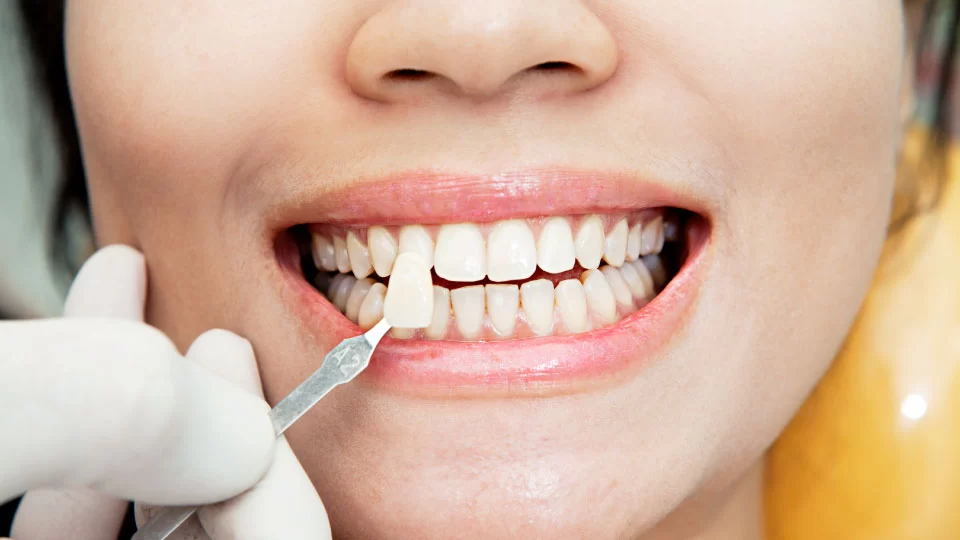
How Long Do Veneers Last on Teeth? Discover the Lifespan of Porcelain Veneers
- Understanding Veneers
- Types of Veneers
- Factors Affecting Veneers Lifespan
- How to Extend the Lifespan of Veneers
- When to Replace Veneers
- Final Thoughts on Veneers Longevity
1. Understanding Veneers
Dental veneers are thin, custom-made shells placed over the front surface of teeth to enhance their appearance. They are typically made from either porcelain or composite resin, with porcelain being the most popular choice due to its durability and natural appearance. Veneers are an excellent solution for a variety of cosmetic dental issues, including discoloration, chips, cracks, and misalignment. But one common question that patients often ask is: How long do veneers last on teeth?
Veneers are considered a long-lasting solution to improve the aesthetics of your smile, but like any dental treatment, their lifespan can vary depending on various factors.
2. Types of Veneers
There are two main types of veneers: porcelain and composite resin. The longevity of veneers can be affected by the material used, with porcelain generally lasting longer than composite resin.
Porcelain Veneers
Porcelain veneers are made from durable ceramic material that mimics the look of natural teeth. These veneers are highly resistant to stains and wear, and they typically last between 10 and 15 years when properly cared for.
Composite Resin Veneers
Composite resin veneers are made from a tooth-colored plastic material. While they are more affordable than porcelain veneers, they are also less durable, typically lasting between 5 and 7 years. They may also be more prone to staining and wear over time.
3. Factors Affecting Veneers Lifespan
The lifespan of veneers depends on a variety of factors, including the type of material, how well you care for them, and your lifestyle. Here are some key factors that influence how long your veneers will last:
1. Oral Hygiene
Maintaining proper oral hygiene is crucial for the longevity of your veneers. Brushing twice a day, flossing regularly, and visiting your dentist for cleanings can help prevent plaque buildup and gum disease, both of which can affect the durability of your veneers.
2. Bite and Grinding Habits
If you have a habit of grinding your teeth (bruxism) or clenching your jaw, it can wear down your veneers more quickly. Using a night guard can help protect your veneers from this kind of damage.
3. Diet
Your diet also plays a role in how long your veneers last. Hard, sticky, or chewy foods can put stress on your veneers and cause them to crack or chip. Avoiding foods like ice, caramel, and hard nuts can help extend the life of your veneers.
4. Accidental Damage
Accidental damage, such as trauma to the face or biting down on something hard, can cause your veneers to crack or chip. While porcelain veneers are strong, they are still susceptible to damage from significant force.
4. How to Extend the Lifespan of Veneers
While veneers are durable, taking care of them properly can help ensure that they last as long as possible. Here are some tips to extend the lifespan of your veneers:
1. Maintain Regular Dental Checkups
Visiting your dentist regularly for checkups and cleanings will ensure that your veneers remain in good condition. Your dentist will also be able to identify any issues early on, such as cracks or loosening, before they become more serious problems.
2. Use a Soft-Bristled Toothbrush
Using a soft-bristled toothbrush and a non-abrasive toothpaste will prevent damage to the surface of your veneers. Hard bristles or abrasive toothpaste can scratch or dull the finish of porcelain veneers.
3. Avoid Staining Foods and Beverages
Porcelain veneers are highly resistant to stains, but composite veneers can discolor over time. To keep your veneers looking their best, avoid dark-colored foods and drinks like coffee, tea, red wine, and berries, which can stain the surface of your veneers.
5. When to Replace Veneers
Even with proper care, veneers will eventually need to be replaced. If you notice any of the following signs, it may be time to consider replacing your veneers:
1. Cracks or Chips
If your veneers are cracked or chipped, they may no longer provide the protection and aesthetic benefits they once did. Your dentist can help determine if they need to be repaired or replaced entirely.
2. Discoloration
Over time, composite resin veneers can discolor, especially if you have an eating or drinking habit that promotes staining. If the discoloration is significant, replacement may be necessary to restore your smile.
3. Wear and Tear
Even porcelain veneers can experience wear and tear after many years of use. If you notice that your veneers are becoming thin or starting to wear down, it may be time to replace them to maintain their function and appearance.
6. Final Thoughts on Veneers Longevity
The longevity of your veneers depends on a variety of factors, including the type of veneers, your oral hygiene habits, and your lifestyle. While porcelain veneers can last between 10 and 15 years, and composite veneers typically last 5 to 7 years, both can be extended with proper care. If you're considering veneers for a smile makeover, be sure to discuss all your options with your dentist to determine which material is right for you.
For more information on porcelain veneers and how they can enhance your smile, visit Dentistry Toothtruth. We offer a wide range of dental services and products designed to help you maintain a healthy and beautiful smile for years to come.
Click here to explore our veneer options and schedule your consultation today!







 Dental Associates of Delaware-Hockessin4.0 (247 review)
Dental Associates of Delaware-Hockessin4.0 (247 review) Children's Dental FunZone - Pediatric Dentist - Fontana4.0 (1496 review)
Children's Dental FunZone - Pediatric Dentist - Fontana4.0 (1496 review) Henrico Dental: Dr. Sujit Mohanty4.0 (42 review)
Henrico Dental: Dr. Sujit Mohanty4.0 (42 review) Red Oak Dentistry: Dr. Michael King4.0 (74 review)
Red Oak Dentistry: Dr. Michael King4.0 (74 review) Center One Dental Associates - Philadelphia Dentist4.0 (281 review)
Center One Dental Associates - Philadelphia Dentist4.0 (281 review) Koch Orthodontics - Loganville5.0 (863 review)
Koch Orthodontics - Loganville5.0 (863 review) The Importance of Oral Health Education During Pregnancy for a Healthy Pregnancy
The Importance of Oral Health Education During Pregnancy for a Healthy Pregnancy Best Tips for Brushing Your Teeth Properly for Healthy Gums: Essential Techniques for Oral Health
Best Tips for Brushing Your Teeth Properly for Healthy Gums: Essential Techniques for Oral Health Why Skipping Dental Checkups Can Lead to Bigger Oral Health Problems
Why Skipping Dental Checkups Can Lead to Bigger Oral Health Problems Advantages of Porcelain Dental Restorations
Advantages of Porcelain Dental Restorations How Can Diabetes Cause Tooth and Gum Problems? Preventing and Managing Oral Health Issues
How Can Diabetes Cause Tooth and Gum Problems? Preventing and Managing Oral Health Issues Healthy Habits for Promoting Good Oral Health and Hygiene: Tips for a Healthy Smile
Healthy Habits for Promoting Good Oral Health and Hygiene: Tips for a Healthy Smile